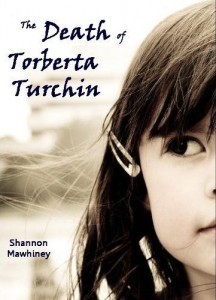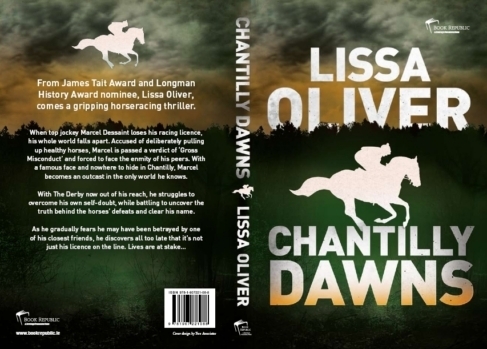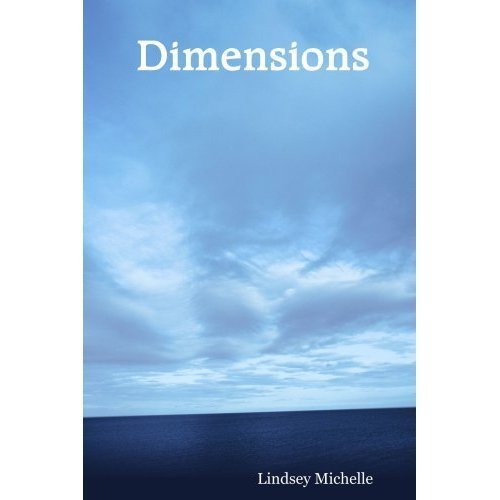Jerome Parisse's Blog, page 13
April 23, 2011
Paul Garrigan: "Dead Drunk"
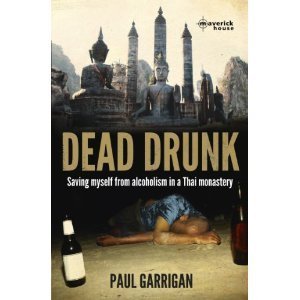 Hi Paul, could you please describe yourself in five words?
Hi Paul, could you please describe yourself in five words?
A believer in second chances
What can you tell us about "Dead Drunk"?
Dead Drunk documents a journey that led me to a Thai temple where I defeated my alcohol addiction. I describe growing up in Dublin and the reasons I found drink so appealing in the first place. In the beginning alcohol worked well for me; it helped me cope with teenage problems and gave me confidence. It wasn't long though before I started getting into trouble because of my fondness for drunkenness.
For two decades my life was a complete mess as I moved from one disaster to another. At age twenty I entered my first treatment centre; five years later I ended up homeless in London and begging for money to buy booze. I later moved to Saudi Arabia because I heard that alcohol was illegal there, but this turned out to be a huge mistake. I eventually ended up living in a Thai village and this is where I lost all hope. I was drinking myself to death until I came across information about a Buddhist temple that treated addiction.
Thamkrabok temple is considered to be the toughest treatment facility in the world. It tends to attract the hopeless cases that have failed every other type of addiction treatment. The novel program, involves daily vomiting sessions mixed with periods of meditation. In Dead Drunk I discuss my experiences at the temple and the interesting people I met during my stay.
There are lots of books that describe the fall into addiction and all the bad things that can happen when we lose control. In this book I've been completely open about my past in Dead Drunk but I don't do this for mere titillation of the reader. This is a story about second chances and how we can all make a comeback no matter how far we have fallen in life. People can change and my story is proof of this.
Who's your favourite author?
It is difficult to say; it depends on my mood. If I had to say then I suppose I enjoy writers like Irvine Welsh and Rodney Doyle. I would probably tell you two different writers if you asked me next week.
Do you have tips for budding writers?
I'd say that it is much better to write than to talk about writing. I no longer see it as anything too special, and I don't take myself too seriously. I've worked full time as a writer for the last 2 years and it is much like other jobs. The more you write the better you get at it; if you have a bit of talent then so much the better. My advice to anyone who wants to make a living as a writer is to never pay money to have your work published by someone else– ever.
What are you working on now?
I've signed a contract with my publisher to write a new book for 2012. This is going to be about my experiences fighting Muay Thai – the toughest martial art in the world. It will be a real challenge to step into the ring at my age. I'm hoping that it will be an interesting book that will inspire other people to live their dreams.
Where can we find you online?
You can find out more about Dead Drunk here http://paulgarrigan.com/dead-drunk/
You can follow my exploits in Muay Thai here http://middleagedmuaythai.com/








Francis Parker: "Matanzas Bay"
 Hello Francis could you please describe yourself in five words?
Hello Francis could you please describe yourself in five words?
Five words? Now that's a real challenge for a novelist who writes 1,000 words a day. But if I had to craft a five word sentence to describe me, I'd have to say, DiGenti (aka Francis Parker) writes compelling fiction. How's that? Only four words. If you'd like five adjectives, Curious, Driven, Compulsive, Focused, Fortunate. Curious — Curiosity is an essential part of a writer's life. Driven — I find myself driven to improve my writing as well as to succeed. Compulsive — I've always had a bit of OCD, and I like to joke that writing is an obsessive-compulsive disorder. Focused — A writer needs to stay focused, to put on blinders or he will be constantly distracted by the world around him. Fortunate — Even though I began my writing career late in life, I've been fortunate to find acceptance with my Windrusher trilogy. I'm hoping my new series of Quint Mitchell Mysteries will also find an audience among the thousands of mystery lovers.
What can you tell us about "Matanzas Bay"?
Matanzas Bay is the first Quint Mitchell Mystery. Quint is a private detective based in Jacksonville Beach in NE Florida. He's also a bit of an archaeology buff, and while helping his friend Jeffrey Poe, the City Archaeologist for St. Augustine, he unearths the body of the city's vice mayor. Poe is a prime suspect for the vice mayor's murder due to a feud over a new development called Matanzas Bay that will change the face of the old city. While trying to prove his friend's innocence, Mitchell, and the reader, are introduced to a cast of colorful characters. He also stirs up haunting memories of his own brother's murder. Mitchell's investigation uncovers the corrosive residue of racial violence as he unknowingly comes too close to a long held secret dating back to the city's Civil Rights' struggles in the long, hot summer of 1964. Before it's over, Mitchell comes to terms with his own past, confronts a serial killer, and almost loses his life at the St. Augustine Alligator Farm.
Who's your favorite author?
I enjoy reading a wide variety of authors. Right now I'm reading Brad Thor's The Apostle and Joseph Wambaugh's Fire Lover while listening to Michael Connelly's, The Scarecrow. Not at the same time, of course. I recently completed Stieg Larson's Millennium Trilogy. Among my other favorite authors are James Lee Burke, Dennis Lehane, Robert Craig and Lee Child. You can see I read a lot of mysteries and thrillers.
Do you have tips for budding writers?
We were all budding writers at one point. What I learned is that good writing takes time to learn. It's a job, and like any job, there's a learning curve. Writers need to concentrate on mastering their craft before worrying about how to get an agent or a publisher. Ray Bradbury once said, "The first million words don't count." So I'd suggest beginning writers learn all they can about the craft by attending conferences and workshops. Join a critique group. Read good how-to books, and write—a lot. Also read the leading authors in their genre, try to analyze what works and how you can best use their techniques to improve their writing. I'm not talking about plagiarism, but learning a skill, whether it's character, dialogue, setting or plot. Although, you know what they say about plagiarism: If you borrow from one book, it's plagiarism. If you borrow from a lot of books, it's research.
What are you working on now?
Matanzas Bay has just been released as an ebook for Kindle and Nook, but it will be released as a trade paperback soon. I'm doing a final proofing of the print conversion, but also marketing the book to help drive sales. I'm also writing the second in the Quint Mitchell Mystery series, Bring Down the Furies. I've include the prologue and first chapter of that book at the end of Matanzas Bay. I also stay busy doing writing workshops.
Where can we find you online?
My website is www.windrusher.com, a site I launched to coincide with my Windrusher adventure/fantasy novels. Those books feature a feline protagonist. Because they have a large YA readership, I decided to publish Matanzas Bay under the pen name, Parker Francis. I'll have a separate Parker Francis site up soon. I'm also on Facebook.








April 14, 2011
Bradley Convissar: "Dogs of War"
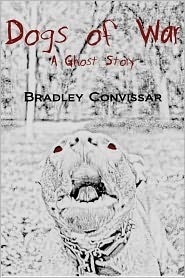 Brad, could you please describe yourself in five words?
Brad, could you please describe yourself in five words?
"I love pulling teeth. Literally" (I'm a dentist, so it's okay)
What can you tell us about "Dogs of War"?
My just released novella "Dogs of War" was a cathartic experience for me. Every so often, you'll read a news story or see something on the web that is so awful, so heinous, but you know that true justice will never be found and the villain will walk away unpunished. That's just how the world works sometimes; no good deed goes unpunished while the bad guys seem to catch all of the breaks. As a writer, I am allowed to take such stories, create a fictional world, and re-write the endings in a way that allow me a sense of justice. If the law won't punish people for the evil they commit, well, I'll just have to do it. Dogs of War was inspired by such an event and I describe it as a brutal, haunting, heart-wrenching story about a world, a culture, that thrives in the shadows
Who's your favourite author?
Do I have to pick just one? If so, It would have to be Stephen King. But if allowed some leeway, I'll add Clive Barker and Neil Gaiman
Do you have tips for budding writers?
Just do it. I had a hard time for a while because, while I love writing, there is little instant gratification. I would find myself reading comic books or playing video games or surfing on the internet instead because visualizing the day the novel would be done was hard. And it's not just the writing; weeks and weeks of editing loom on the horizon. That is one of the reasons I moved to short stories for a time. You get to explore many more stories in a shorter amount of time, and you get a finished product much more quickly. So, like I said, just sit and do it. Find a comfortable spot away from wife and kids or roommates and write. And turn off the Wi-Fi. Trust me
What are you working on now?
Let's see. I am doing final editing on the fourth book in my Pandora's Children collection. It is a four book series, each containing between 2 to 4 stories. Once I am finished with this, I am going to get back to work on my first novel. If I can decide which project to return to. I am also in the process of compiling several short stories from some unknown horror authors so I can put together and anthology.
Where can we find you online?
Easier to ask where I can't be found…. I recently had a story, "Swim", published in a new horror magazine called Trembles. I had another story, "Naughty and Nice", recently published in Suspense Magazine. I am a weekly contributor to a blog called The Paranormal Wire, where you will find original stories as well as blog posts during Walking Dead Wednesdays. (I just posted an original story, "Gone in a Flash" on that site). Where else? Here's a quick list:
The official Pandora's Children website: www.pandoraschildren.com
My Smashwords profile, where all of my books, as well as the free 7-story, 20,000 word Pandora's Children: Dark Interludes, are available for purchase for multiple platforms
My YouTube channel, where you can find a piece of video flash fiction and 2 video trailers: http://www.youtube.com/user/Bconvisdmd?feature=mhum
My Facebook page: http://www.facebook.com/pages/Bradley-Convissar-Author/178862205471284
My Amazon profile, where you can purchase books directly: http://www.amazon.com/Dr.-Bradley-Convissar/e/B0049E1IIG/ref=ntt_athr_dp_pel_pop_1
My Barnes and Nobles profile, where you can purchase books directly: http://search.barnesandnoble.com/books/product.aspx?ean=2940012620637








Shannon Mawhiney: "The Death of Torberta Turchin"
"The Death of Torberta Turchin" is on my "to read" list. It really sounds like my kind of novel. Shannon Mawhiney tells us a little more about her and her novel.
Hi Shannon, could you please describe yourself in five words?
No, I don't think so.
What can you tell us about "The Death of Torberta Turchin"?
The Death of Torberta Turchin is a YA paranormal novel that I hope also appeals to adults. It's about a 14-year-old girl, Torberta (or Torby), who communicates with the dead. She can't see them; she can only hear them. Because of this, her relatives sent her to a boarding school for mentally ill children, after her parents died in a car crash when she was five. Ever since then, her best friend has been a man named Charlie, a ghost who died in the 1930s. Charlie does his best to guide and protect her, acting as an invisible big brother. But he can't do much for her if he can't figure out who's trying to kill her.
Who's your favourite author?
Lois Lowry. The Giver was (and still is) my absolute favorite book. Her ability to engage both children and adults is something I'd like to be able to do in my own writing.
Do you have tips for budding writers?
If you're not sure what to write or feel like you're blocked, write anything you can think of. Write in a journal, join a role-playing game writing group online, write out your dreams every morning, go to the food court in the mall and describe what you see.
What are you working on now?
Marketing Torberta Turchin, but also plotting out the next book in the series. And my garden!
Where can we find you online?
Practically everywhere.
Blog: http://mawhiney.blogspot.com
Facebook: http://www.facebook.com/torberta








April 13, 2011
Teaching English to deaf Chinese children…
While living in Kunming (Yunnan, south-west China), I did a bit of volunteer work teaching English in a school for the deaf. It was an amazing experience. Those kids probably taught me more than I taught them… I had three classes, varying from twelve years old to eighteen years old. What was truly wonderful was that they were all interested, keen to learn, eager to participate in class activities. Whenever I asked for a volunteer, I had ten kids rushing to the blackboard! Many of them come from the country and only see their families on the weekend. More girls than boys, but a good mix nevertheless. A handful of them will move on to one of the three deaf Universities in China – if they pass the difficult entry test. Most of them will learn a trade and find a job. We had lots of fun in class. I think they got used to me pretty quickly. So how do you teach English to deaf Chinese children? Here's how it went. First, you have to realise that most of them cannot speak (neither Chinese nor English), so they learn to write and read English. I had to quickly learn basic Chinese Sign Language. I can sign in Australian Sign Language, but guess what, the two languages are as different as English is from Arabic (For those who wonder, they are many, many different sign languages in the world. This is because they are natural languages, not man-made communication tools as many people imagine). So basically, I wrote English on the blackboard, then spoke Chinese to the class (Some children can lip-read) and signed in Chinese Sign Language at the same time. My brain got confused quite a few times, let me tell you! When I wanted them to "say" English words to me, I asked them to fingerspell them. Fingerspelling uses fingers to display letters of the alphabet, another feature of sign languages. I also used fingerspelling to teach them and practice new words. As for explaining grammatical points, I had to be quite creative (Try explaining the difference between "boring" and "bored" with signs, when the two words are the same in Chinese!) Anyway, I had a ball, and I was really sad at the time of leaving. It's an experience I can highly recommend to anyone!
Here is a photo of each of my classes.








James Everington: "Feed the Enemy"
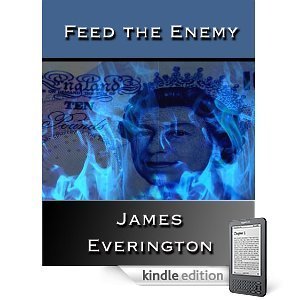 Hi James, could you please describe yourself in five words?
Hi James, could you please describe yourself in five words?
Reader, writer, drinker, headache sufferer.
What can you tell us about "Feed the Enemy"?
It's a standalone short story about a woman attempting to flee London due to an escalated terrorist threat. Her husband works behind the scenes in the government; he encourages her to flee and… let's just say she starts to suspect he has a more personal reason for wanting her out the way… It's a story not about terrorism itself, or its consequences (horrific as they are) but the general drip-drip of the media and politicians about the threat level, about shadowy disasters narrowly averted… how does that kind of background affect our lives and relationships? I knew I wanted to write about that for a while, and when I found a plot that dovetailed naturally with it I was pretty happy.
Who's your favourite author?
I can never answer this question! A quick scan of my book shelves reveals that the author I've got most books by is Terry Pratchett, so on a purely mathematical basis it must be him…
Do you have tips for budding writers?
Read a lot of books, and if you write in a specific genre don't limit your reading to that one genre.
If you read a truly bad book, treasure it – when you're own writing is going bad (and it will do, one day) you can think back to that book and think 'well at least what I'm writing isn't as bad as that'.
What are you working on now?
I plan to publish a book of short stories very soon, which will be called 'The Other Room'. It will be different from 'Feed The Enemy' – most of what I write is dark, supernatural fiction, although not necessarily 'horror' in the blood and guts sense. I enjoy the unexplained, the psychological, and the ambiguous in my weird fiction, and 'The Other Room' contains such stories. Think writers like Ramsey Campbell, Shirley Jackson, and Robert Aickman.
Where can we find you online?
My blog, Scattershot Writing, is at http://www.jameseverington.blogspot.com/








Lissa Oliver: "Chantilly Dawns"
Hi Lissa, could you please describe yourself in five words?
Addicted and passionate for writing!
What can you tell us about "Chantilly Dawns"?
It was written as a psychological drama, exploring a young man's emotional destruction as he loses his job and the life that went with it. In creating the situation, I ended up writing a gripping thriller (according to my publisher and readers!)"Chantilly Dawns" tells the story of a champion French jockey who loses his licence to ride because of mental incompetence. In battling to clear his name he is forced to revisit childhood traumas and overcome old fears. Being a horseracing journalist, it was natural for me to set the story in the racing town of Chantilly.
Who's your favourite author?
Terry Pratchett, for sheer turn of phrase and making me laugh. He's a master story-teller and wonderfully consistent. But Anne Rice absolutely blew me away with her first novel, "Interview With The Vampire". The craftsmanship and technique was wondrous. It's a lesson in how to write. I haven't always liked her books since, but every time I sit down to write I strive to write my own equivalent of 'Interview With The Vampire'.
Do you have tips for budding writers?
Keep at it. Don't take rejections to heart, have faith in your work and keep honing and improving. If you care about your characters, so will your readers. I find the biggest hurdle faced by beginners, when I teach creative writing classes, is that they don't comply with the three basic rules of a story - a beginning, a middle and an end. They set out on their story with no real idea of how it will end and therefore no idea of where they're going. They get lost and start to wander and never actually finish. Think of where you're aiming towards before you start. You can always change your mind as you write, but a sense of direction is vital.
What are you working on now?
Characters are so important to me, I need to know them (and their families and past!)inside out before I finally set them to paper and build a plot around them. So I had three characters queuing up waiting for me to finish "Chantilly Dawns" and now they are facing similar hardships to those of poor Marcel, the French jockey! A very sadistic streak comes out in me as soon as I start to type! It's another thriller, set in the world of racing I so love.
Where can we find you online?
I'm on Facebook and I have a website, www.lissaoliver.ie , with an active Diary Page and showcasing many of the features I've written. My latest novel "Chantilly Dawns" is available from my publisher www.bookrepublic.ie and all my books are on www.amazon.co.uk as books and Kindles. I also have an 'Author Page' on Amazon!








April 11, 2011
Borislava Borissova: "Affairs of the Heart"
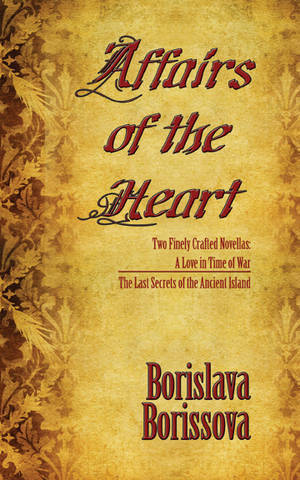 Hi Borislava, could you please describe yourself in a few words?
Hi Borislava, could you please describe yourself in a few words?
I consider myself a writer by soul because, although I have been working as a recruiter in the field of Human Resources for years in my free time; history and writing are the important passions of my life. I love interesting stories and legends. I love adventures that take us through the ages and help us to experience countless earthly and celestial places. I love Sofia, Sicily, Istanbul, Rome, Seville, and London. The towns are like museums under open sky. I like discovering these scenes of legends and secrets, history, journeys, culture, and ancient remains.
What can you tell us about "Affairs of the Heart"?
My second book Affairs of the Heart will be published in a few weeks. There are also two novellas, the contemporary love drama "The last secrets of the ancient island" and the historical love drama "A Love in Time of Wars".
"A Love in Time of Wars" is a turn of Twentieth Century love story. Scenes of passion, hatred, love and great efforts for changes in peace affect everyone's life in two warring nations. Differences abound in cultures, religions, languages, traditions and so on, for a young Bulgarian girl and a Turkish officer trying to overcome the obstacles between them. The wars become the past, the past becomes history and through the years only love is still alive in a very beautiful tale to remember.
"The Last Secrets of The Ancient Island" is a story about loneliness and the fears of loneliness that can change our world with the same strength as strong love or hatred. A series of mishaps in an old town puts each main character under suspicion. An unknown driver has a tragic motivation to take another life. At the end, with the unveiling of the last mysteries of ancient sights unexplored by historians and archaeologists, it becomes clear that we are born alone, we die alone, but life is our chance to live with love. If possible… If we so wish.
Mikhail Bulgakov with Master and Margarita. I wish his heroes were real and I could meet Wolland, Begemot etc. I even don't want to bid farewell to them so I have read a big pile of reviews about the book. I find it very interesting to know how other people perceive the stories, characters which found "home" in my soul and mind. The reviews appear as a kind of sequel to the books themselves, and I enjoy spending some extra time with the heroes.
Do you have tips for budding writers?
Nothing ends with the end of the story. When the last sentence is written, the pages are wrapped with beautiful covers in warm colors and you take a deep breath because everything is behind you… but for the author the difficulties just start. She or he must put tremendous efforts to overcome all obstacles on the road to reach the readers. Writing isn't an easy process but finding a publisher is not any simpler.
What are you working on now?
My next book Somewhere Around Us (fiction).
Where can we find you online?
http://borislavaborissova.quenit.com/books/affairs-of-the-heart.html
http://www.roseheartbooks.com/borislavaa.html








Author interview: Lindsey Michelle
Lindsey Michelle tells us about her latest novel, Dimensions.
Jerome: What can you tell us about Dimensions?
Lindsey: I've always been interested in stories involving supernatural aspects, whether it's time travel, aliens or, in this case, alternate dimensions. Set in present-day, "Dimensions" follows several characters who travel to another dimension and, unbeknownst to them at first, each have a connection to people they meet there. The alternate dimension is like ours in many ways, except there's a lack of numbers — nothing is measured by time or money, and memories can be erased. The influx of new visitors causes irreversible changes, some very harmful.
Jerome: Who are your readers?
Lindsey: Happily, I've discovered that "Dimensions" appeals to both genders and many ages. The idea of traveling to an alternate dimension appears to be a universal wish. When I started writing the novel, I didn't categorize it into a specific genre. Upon completion, I specify it as "science fiction", but it also contains romance, mystery and family drama.
Jerome: What was your journey as a writer?
Lindsey: I had recently written two "scary stories" that were published in short story anthologies, and initially "Dimensions" was going to be a third short story. However, it quickly became much longer. After writing the first three chapters, I realized that there was a lot to explore in Vera's (one of the main characters) background. That's why the story goes back in time before returning to the present.
Jerome: Do you follow a specific writing process?
Lindsey: A repeated rule in writing classes is to outline work, which I find essential when writing screenplays or teleplays, but honestly, I didn't outline "Dimensions" first. I let the story take me where it wanted to go, which works for me in novel form. The novel is split into three sections, and I think learning screenplay structure probably influenced the novel. I knew I needed subplots and rising tension that led to the biggest conflict in the "third act". I do most of my writing in late afternoon or evening/night. The first draft of "Dimensions" took a few months to write.
writing screenplays or teleplays, but honestly, I didn't outline "Dimensions" first. I let the story take me where it wanted to go, which works for me in novel form. The novel is split into three sections, and I think learning screenplay structure probably influenced the novel. I knew I needed subplots and rising tension that led to the biggest conflict in the "third act". I do most of my writing in late afternoon or evening/night. The first draft of "Dimensions" took a few months to write.
Jerome: Where do you find inspiration?
Lindsey: Occasionally I've had dreams that lead me to a story, but most of the time, I just sit and write. I often start with an idea and create the characters as I go along. I wish I could provide more information, but I'm not sure where the stories come from!
Jerome: Who are your favourite authors?
Lindsey: I love authors from the 1920s, especially Hemingway. "A Moveable Feast" and "The Sun Also Rises" are two of my favorite books. I admire his sparse but vivid writing. "Brideshead Revisited" is another favorite — although it wasn't written in the '20s, a majority of the novel takes place in the decade. I think the prose is beautiful and wistful. I also have to mention how much series books influenced me when I was growing up. At the time, I just liked being able to repeatedly "check in" with the characters I loved, but I think reading series does a lot for writing — you witness ups and downs and realize what types of stories and plot twists you like as a reader and writer.
Jerome: Is there a book you wish you had written? Which one?
Lindsey: I'd love to write the type of must-read novel that everyone talks about and obsesses over. For me, an example would be "The Thorn Birds". I read the novel in junior high, about fifteen years ago, but I still remember it so clearly. The characters stay with you.
Jerome: Do you have any tips for budding writers?
Lindsey: Write as much as possible — that's obvious, right? Take classes and listen to suggestions for improvement, but don't necessarily tailor your writing to one person's opinion. Submit your writing to wherever possible; even if it gets rejected, sometimes you'll receive a tip that can change the novel (or whatever form of writing) for the better.
Jerome: What are you working on at the moment?
Lindsey: I've been revising and submitting screenplays and a television pilot script. I equally like screenwriting/television writing and novels, but recently my focus has veered towards the former (especially because I work as a screenplay reader — seeing the abundance of submissions prompts me to submit my own work). However, you never know when another idea for a novel will hit!








infinity plus: the birth of a new eBook imprint
infinity plus is a new eBook imprint on the market. Keith Brooke, its founder, has accepted to answer a few questions about the birth of the imprint, its successes so far, and some of the lessons learned in the process. As you will see, it is fascinating.
Jerome: What exactly is infinity plus?
Keith: infinity plus is a science fiction, fantasy and horror showcase that ran from 1997 to 2007. It started out as a place where I and a few mainly UK-based fellow authors could put up stories and novel extracts for free. The aim was to find new audiences for work that had already appeared elsewhere and to share each other's readers around. The timing was perfect: in 1997 most authors were becoming aware of the web but had little idea of how to exploit it, and soon the site had grown into the equivalent of a weekly magazine, publishing work by most of the key writers in those genres, including Stephen Baxter, Mary Gentle, Peter F Hamilton, Gwyneth Jones, Vonda N McIntyre, Michael Moorcock, Kim Stanley Robinson, Lucius Shepard, Michael Swanwick, Jack Vance, Connie Willis and Gene Wolfe. After ten years we had more than 2 million words of fiction, 1000 book reviews and 100 interviews on the site, but the demands on my time were just too much and the site went into hibernation (it's still available as a static archive at www.infinityplus.co.uk).
In December 2010, I relaunched infinity plus as an ebook imprint, working both with authors featured on the website and moving into new areas (for us) such as crime fiction.
Jerome: What formats and genres does infinity plus publish?
Keith: Primarily we publish science fiction, fantasy, horror and crime fiction, but we're open to suggestions! To start with, we've targeted Amazon's Kindle format because we see it as the market leader and their publishing mechanism makes it easy for a non-US publisher to distribute our books; other platforms make it very difficult for publishers outside the US, unfortunately. We're starting to experiment with other formats, and soon we'll be publishing in all the major ebook formats, despite the obstacles.
Jerome: Can you tell us more about how infinity plus was born?
Keith: The original web showcase came about when I went on a course for my day job, a one-day session on how to write HTML. Having learnt how to produce web pages, I decided to put it to good use by setting up my own website. Pretty quickly I worked out that my site would probably mainly attract people who already knew of my writing, so I sounded out a few friends in the business to see if they wanted to join in. They were keen, so when the site was launched it showcased four British SF authors rather than just me. Pretty soon, authors were mailing and phoning me asking if they could join in the fun. The ebook imprint has followed a similar path: initially I just wanted to put out some of my own work, but then I started talking to people and realised that there was a lot of interest from other authors.
Jerome: How is it doing so far? Any best-sellers?
Keith: We launched in December 2010, and now we have 11 titles out from five authors. In total we have around a dozen authors so far, either already published or in the queue. We've had a very positive response from within our genres: it's been lovely to see the amount of goodwill that is attached to the infinity plus name. One sign of our impact is that at least two publications are covering ebooks for the first time in order to feature our books. Sales have been far better than I'd anticipated by this stage and we've had four titles in various Amazon top tens.
Jerome: Who are some of the authors published by infinity plus?
Keith: Our bestselling author is double BSFA award winner Eric Brown. His collection of short fiction, The Angels of Life and Death, showcases the range of his talents and has featured in two Amazon top tens, while the quieter dark fantasy A Writer's Life has picked up some lovely reviews. John Grant has won the Hugo Award twice (that's just about the top award in SF), and his collection of short fiction Take No Prisoners has been a big hit. Kaitlin Queen is the pen-name a bestselling teen fiction author has used for her first novel for an adult audience, One More Unfortunate [ASIN B004GNFNC2]; this one is an atmospheric, nostalgic and clever murder mystery set on the Essex coast were Kaitlin grew up. Anna Tambour is one of those wonderfully quirky writers who is incredibly hard to pin down; she writes satire, comedy, fable, poetry, passionate mainstream fiction and the completely uncategorisable. She's one of my favourite authors, and I wrote the foreword for her collection Monterra's Deliciosa [ASIN B004JKNQJ4]; we've also published her William L Crawford Award shortlisted novel Spotted Lily [ASIN B004JKNQK8]. And finally, there are several volumes of my own collected short fiction; I've been publishing short fiction for over twenty years, so this was quite an undertaking, but very rewarding to do.
Jerome: What have some of the difficulties and lessons learned been along the way?
Keith: The main difficulty I've encountered has been lack of time. I have a list of authors waiting to be published, and far more authors I'd love to work with. Each book needs a lot of attention: our production standards are as high as those of any of the ebooks I've bought from the big commercial publishers, and often higher; and a lot of time goes into promoting our books – having put all that work in, we want them to find a receptive audience, after all!
One thing we have done is take advantage of some of the opportunities offered by e-publishing: there's far more scope to include bonus material in an ebook than there is in print, so most of our titles include things like introductions and afterwords, extra stories that weren't in any print edition, new stories that haven't appeared elsewhere, and assorted oddments of images, poetry, essays, etc. We work to the philosophy that an ebook should be significantly cheaper than any print equivalent, that most of the money should go to the author, and that we should pack in as much as we possibly can.
Jerome: Do you have any advice for anyone with a similar project in mind?
Keith: Pay attention to the detail – it's important to get everything right, and to set your standards high. Remember that publication day isn't the end of the process; in many ways it's only the beginning, if you're hoping to find readers. Talk to fellow publishers: there's a really supportive community out there willing to share experience. And finally, be prepared to be different: e-publishing is opening up the mid-list again, where books that aren't commercially viable for big publishers can still find significant audiences. Exciting times!
Jerome: Any specific projects for the future?
Keith: We have some excellent titles in the queue, including a new edition of Paul di Filippo's first novel Ciphers, the definitive edition of Molly Brown's Restoration crime novel An Invitation to a Funeral, and works by Neil Williamson, Robert Freeman Wexler, Garry Kilworth and others. There are also one or two very interesting projects that I can't quite talk about yet!
Jerome: Is there anything else you would like to tell our readers?
Keith: You can find our books either at www.infinityplus.co.uk/books or simply by searching for "infinity plus" at Amazon. Also, why not follow @ipebooks on Twitter, to pick up on the latest news?








Jerome Parisse's Blog
- Jerome Parisse's profile
- 25 followers


